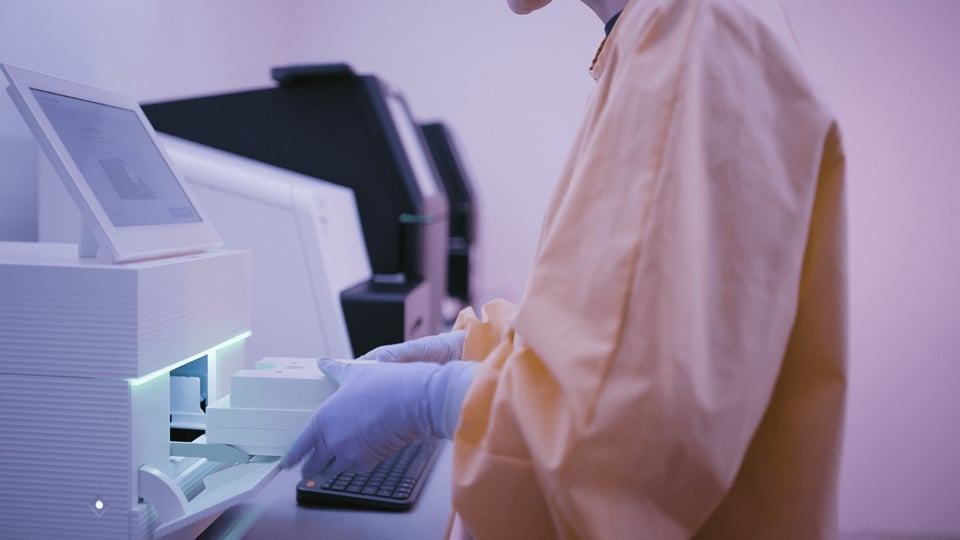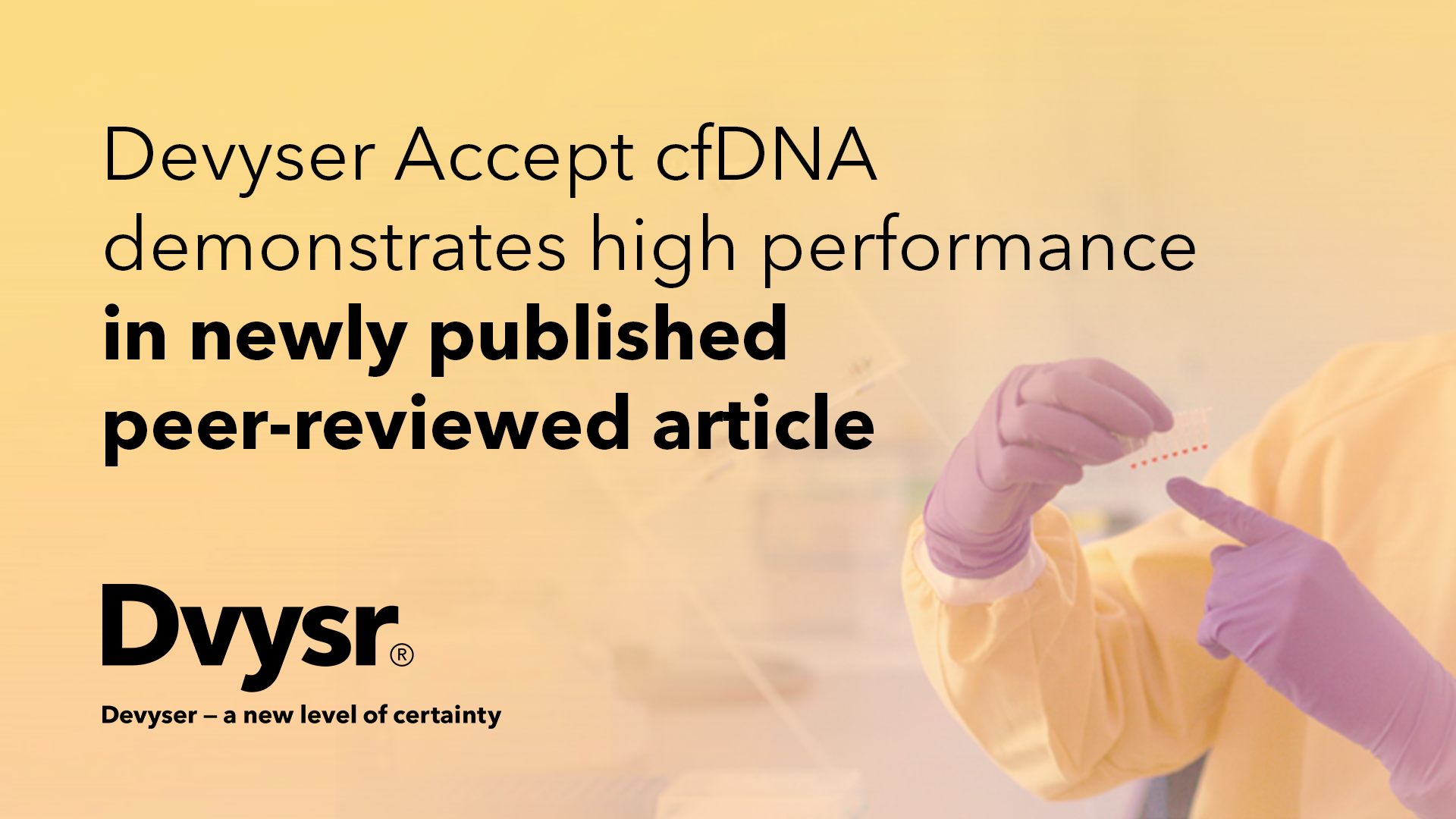Devyser announces study publication demonstrating dd-cfDNA detection in dual donor kidney transplant patients
Devyser Diagnostics AB announces today an article titled “Detection of donor-derived cell-free DNA...

Post-transplantation | February 9, 2023
Relapse of the underlying malignant disease is a major complication after hematopoietic stem cell transplantation (HSCT). Chimerism analysis of recipient and donor cells enables the assessment of engraftment, minimal residual disease, and early detection of relapse post-HSCT. In a study done by Mayo Clinic in collaboration with Devyser, two Next Generation Sequencing NGS chimerism were evaluated.
While both assays tested had the same number of informative markers, the Devyser Chimerism assay had a higher sensitivity with a lower limit of detection of 0.1%
The authors concluded: “High sensitivity chimerism assays using NGS technology may allow better quantitative monitoring of engraftment post-HSCT compared to the current gold standard short tandem repreat-based PCR with capillary electrophoresis (STR PCR CE) method. “
Read more about the study here --> P3.02: Assessment of Chimerism Testing by Next Generation Se... : Transplantation (lww.com)
Brow, Darren1; Pettersson, Linnea2; Elrefaei, Mohamed1. P3.02: Assessment of Chimerism Testing by Next Generation Sequencing. Transplantation 106(9S):p S518, September 2022.
.png)
Devyser Diagnostics AB announces today an article titled “Detection of donor-derived cell-free DNA...
Read More

Read More

Devyser’s novel test for detecting donor-derived cell-free DNA in blood samples from...
Read More
.jpg)
A better patient care is the final objective for Dr. Helena Devos and the team at Sint Jan’s...
Read More